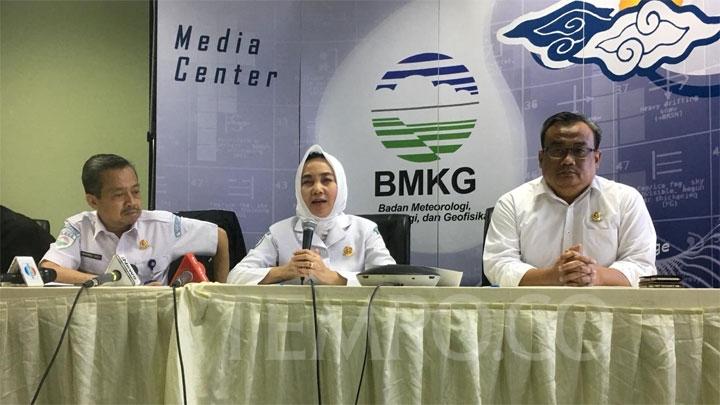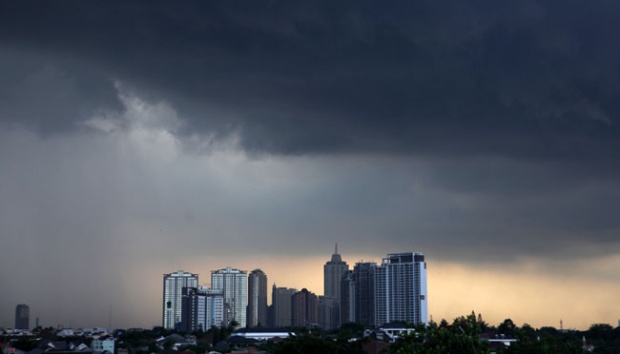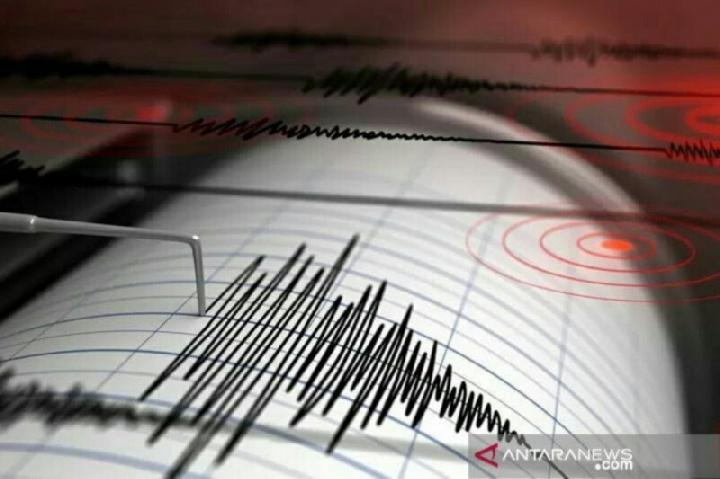BMKG: Rainfall Peaks in January, Temperatures to Rise After
Translator
Editor
14 January 2023 17:17 WIB

TEMPO.CO, Jakarta - Head of BMKG Dwikorita Karnawati explains the causes behind recent extreme weather and predicted drought as well as forest and land fires in 2023.
For example, it’s raining in Kemayoran but we’ve said that rain will fall near Kemayoran. That’s an inaccuracy. We’re cautious about this, which is why we repeat the warnings.
When the Tropical Cyclone Seroja hit, how many days in advance did the BMKG learn about it?
About three days. It happened at one or two o’clock in the morning. The last early warning was at 9pm. At the time, we issued early warnings until close to midnight. But public attention on social media declined because of the information that Atta Halilintar was getting married.
Climate crisis is a global phenomenon. How does the BMKG cooperate with international institutions?
We’re under the supervision and control of the international meteorological agency. There is technological weaknesses and limitations. Actually, there is no limit to technology if there is adequate data.
What data are limited?
Oceans. Climate data is relatively more abundant because they’re open. But every country keeps secrets about their ocean data. This has to do with sovereignty.
Does that mean not much ocean data can be shared?
Not all countries allow their data to be accessed when climate change would be effectively mitigated if there’s ample ocean data.
How does the BMKG monitor the oceans?
Using the mathematical model. There are also stations using automatic weather station radar. We also release drifters. Released equipment, even if there’s just one, gathers data on temperatures, pressure, salinity, and various parameters. But the data are still relatively limited compared to weather data. To understand the impacts of climate change in Indonesia, we need data from other countries. Likewise, places outside Indonesia also require data from Indonesia, so that the World Meteorological Organization issued an open data policy in 2021.
Is there transparency in practice?
It’s difficult. Ocean data are gathered from buoys. The United States and developed countries own plenty of buoys. Indonesia doesn’t seem to have any. But we’re appointed head of the buoy management organization.
What are the effects of not owning buoys?
We don’t have data, can’t perform analyses. The BMKG is preparing equipment similar to buoys. We’re working with other countries to maintain buoys and gather data from buoys owned by other countries in the Indian Ocean.
(In 2019, Indonesia launched InaBuoy manufactured by PAL Indonesia, distributed across sea areas vulnerable to tsunamis. Buoys are part of the Tsunami Early Warning (Ina-TEWS) program created by the BMKG in November 2008).
Is it impossible to predict earthquakes?
In theory, the science to predict earthquakes is there. The BMKG has been doing this for five years.
And the results?
(We) don’t dare publish.
Read the Full Interview in Tempo English Magazine























